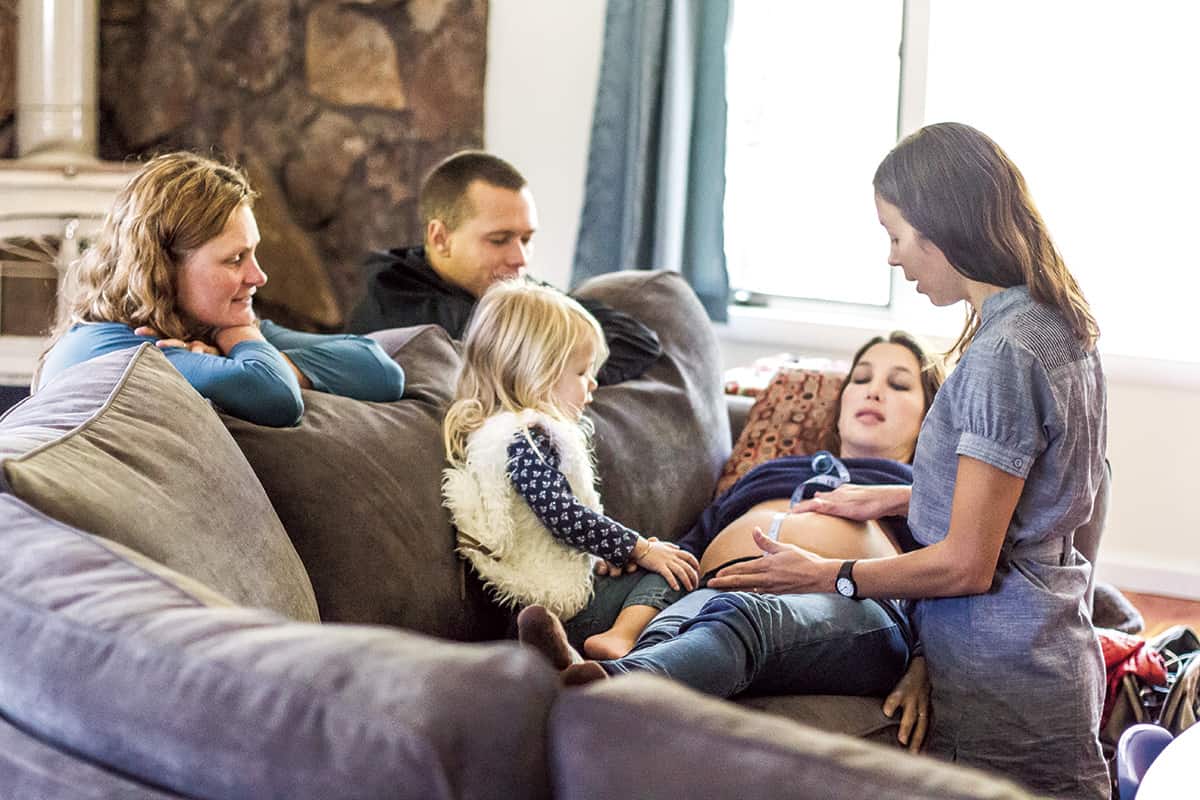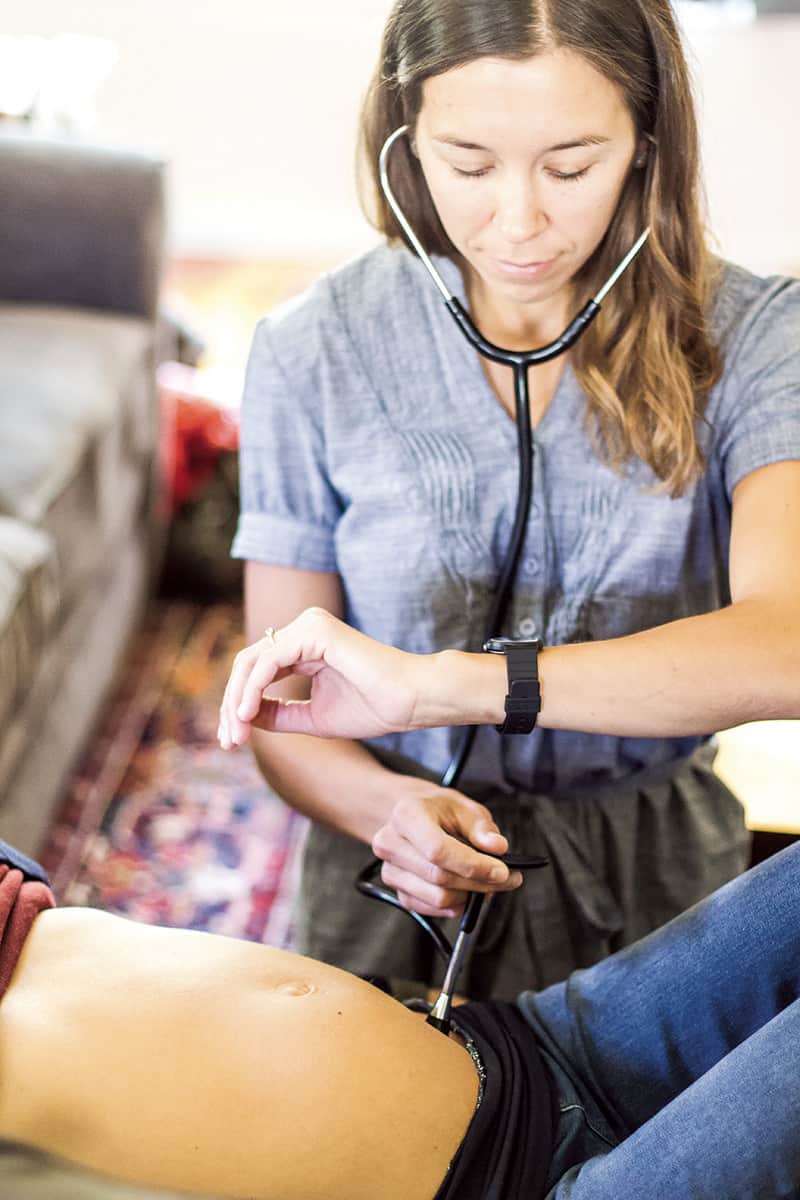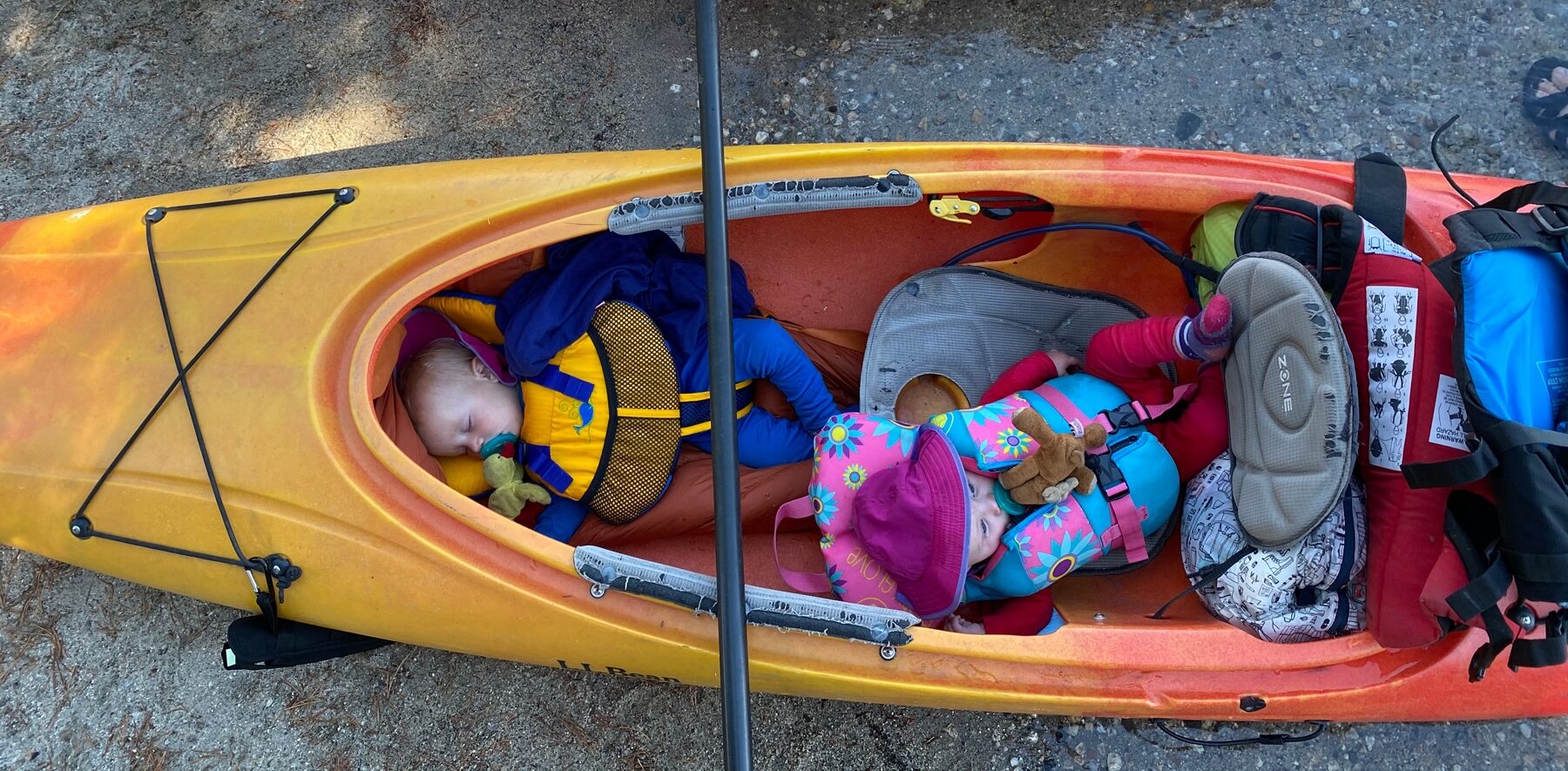By Melissa Snider // Photography by Rebecca Vanderhorst
—
Congratulations, you’re pregnant!
The moment that plus-sign blooms, you enter a maze of decisions: what to eat, how to exercise, and, of course, who to choose as a practitioner for prenatal care and the birth of your baby. If this is your first, you might not realize that there are options other than your regular Ob-Gyn. Enter, the midwife—a healthcare professional who works in partnership with women to support them through pregnancy, labor, birth, and beyond. Midwife care is woman-centered, and treats pregnancy and birth as a normal experience that requires minimal intervention. Remember, the ways to birth your baby aren’t limited to what we see in the movies and on TV. To explore regional options for midwife-assisted births in the hospital, at home, or at a birthing center, read on.
Let’s Talk Letters
What is a midwife—really—in clinical terms?
A Certified Professional Midwife (CPM) is required to have three to five years of academic and clinical work under her belt to obtain this national certification. Candidates study and serve thousands of hours and are trained in suturing, phlebotomy (the practice of drawing blood from patients), and pharmacology. CPMs are issued a credential by the North American Registry of Midwives (NARM) after submitting clinical experience for approval and passing a written exam. Idaho and Wyoming require a midwife to earn a CPM credential before she can become a Licensed Midwife (LM) and practice in the state.
Locally, Dani Boettcher-White CPM, LM is licensed in both Idaho and Wyoming. She practices homebirths alongside pregnancy and birth consultant Whitni Nelson, founder of Victor-based Elevated Midwifery. The two also work as labor doulas and can assist in any birth setting in Wyoming or Idaho. And Kathy LeBaron CPM, LM and Christine Garcia, birth assistant and owner of Selah Midwifery, help Idaho women deliver in their homes or in Selah’s cozy two-room birth center and clinic in Rigby.
A Certified Nurse Midwife (CNM) graduates from an accredited nurse-midwifery program and must pass a national exam in order to practice. The majority of CNMs work in a clinic or hospital setting, under the supervision of an obstetrician (OB). According to the Centers for Disease Control and Prevention, 8.1 percent of all hospital births in the United States in 2015 were attended by a CNM. Regional CNMs include Joanna Sheets at Gros Ventre Ob-Gyn in Jackson, and Theresa Lerch, who practices in both Jackson and Victor. Madison Women’s Clinic in Rexburg and Mountain View Hospital in Idaho Falls also have CNMs on staff. If you want midwife care, but prefer to deliver in a hospital setting, a CNM may be your ideal fit.
Prenatal Care and Birth—Home Edition
The vast majority of mothers in the United States give birth in hospitals, but some families choose to deliver in their own homes or at a birthing center replicating an at-home feeling. “The core of midwifery and homebirth is low intervention,” says Boettcher-White. That’s why both Elevated Midwifery and Selah Midwifery Center take on low-risk clients without chronic health disorders or other complications. LeBaron believes if you’re not high risk, why should you be treated that way? This question is at the heart of her philosophy of service. “Women need to have choice. We need to look at birth as natural, not a risk,” she says.
Building a positive relationship is a key component to midwifery. “We’re going to be part of a really intimate experience in their life … we end up seeing these families for years to come,” says Nelson. The relationship begins during prenatal care, when the midwives visit with families in their homes. Over tea and belly palpation, comes education on preventative care and the birthing process. “We see families on the same schedule, same frequency, and offer the same lab tests as an OB would, but in a much more intimate setting,” says Boettcher-White.
During labor, midwives monitor the baby, keep mom hydrated, and ensure she stays rested, when possible. Nelson and Boettcher-White work as a team and check in regularly to monitor all vital signs. “First births can be very long, and it’s important to have support from beginning to end,” says Nelson. Instead of pain medication, women are encouraged to move and use a variety of positions as labor progresses. And if the mother wants to labor and even give birth in a birthing tub, the midwives bring one to the home.
At the Selah Midwifery Center, water births account for 80 percent of babies delivered. LeBaron calls the birthing tub “the midwife’s epidural,” and notes that relaxation and environment are key to a complication-free birth. After delivery, mom and baby stay at the center for four to six hours before returning home.
After a homebirth, Nelson and Boettcher-White stay with the family for an average of four hours, until they’re confident they have “zero concerns.” Follow-up from the midwives includes a phone call 12 hours after birth, visits within 24 to 36 hours, and checkups at one, two, and five weeks. Each visit includes newborn checks and screenings and breastfeeding support, with an emphasis on the wellbeing of the mother. This frequent postpartum care for mom (not just baby) is a departure from OB care, where most women don’t receive a follow-up visit until six weeks after giving birth.
When considering the financial aspects of having a baby, know that most midwife-assisted home or birthing center deliveries will be paid for out of pocket. If you are happy with your OB but want to access a midwife’s expertise, consider attending a class or visit the websites on page 13 for more information. But know that wherever your baby is born, a midwife can help you deliver. “There’s nothing more rewarding,” says LeBaron. “It all comes down to that moment, when the parents are so in love with the baby. That moment is priceless.”
Doula Care
—
Liz Alvarosa of Jackson has attended more than 200 births in her 13 years as a doula. Her role is to provide a calming, reassuring presence during birth, and to offer suggestions for comfort during labor. “Pregnancy and birth are highly emotional experiences,” says Alvarosa. “[Having a doula] makes birthing feel less scary and out of control.”
Think of doulas as coaches, advocates, and advisors. Whether you’re hoping for a natural birth or are ready to place the epidural yourself, doulas can be invaluable throughout the birth process, at home, or in the hospital. Nationally certified by Doulas of North America (DONA), doulas typically charge $900 for services, which include two prenatal visits; birth support throughout labor; postpartum calls, texts, and visits; and breastfeeding support. “Regardless of how you choose to have your baby,” says Alvarosa, “why not have the experience be a positive one?”
Local Midwives
—
- Dani Boettcher-White CPM, LM, Elevated Midwifery, Victor, elevatedmidwifery.com
- Krista Layne Hays CPM, LM, Victor, 208-881-4042 (Available for birth consultations only, while she is persuing higher education.)
- Kathy LeBaron CPM, LM, Selah Midwifery Center, Rigby, selahmidwiferycenter.com
- Theresa Lerch CNM, C-FNP, Jackson and Victor, 307-733-4585
- Joanna Sheets CNM, Gros Ventre Ob-Gyn, Jackson, gvog.net
Local Doulas
—
- Liz Alvarosa, lizardandmark1@aol.com
- Dani Boettcher-White, CPM, LM, info@elevatedmidwifery.com
- Jen Fox, jennyjanefox@gmail.com
- Whitni Nelson, info@elevatedmidwifery.com
- Andrea Weenig, andreaweenig@yahoo.com





